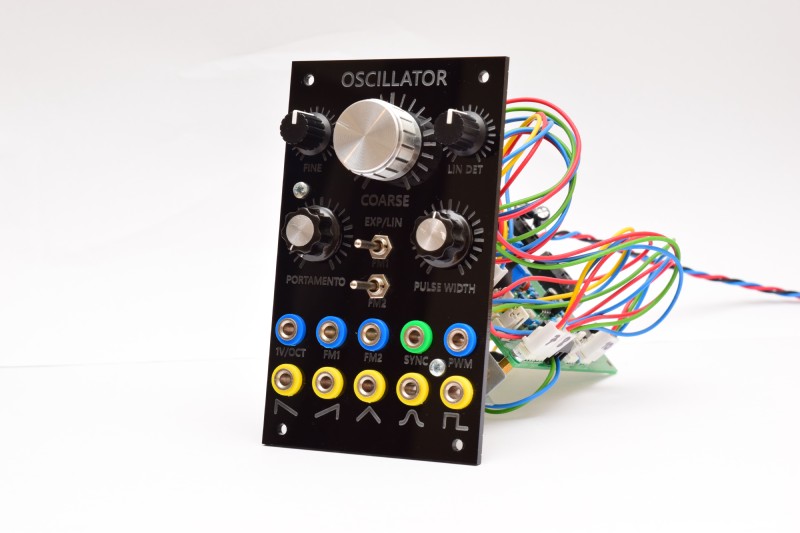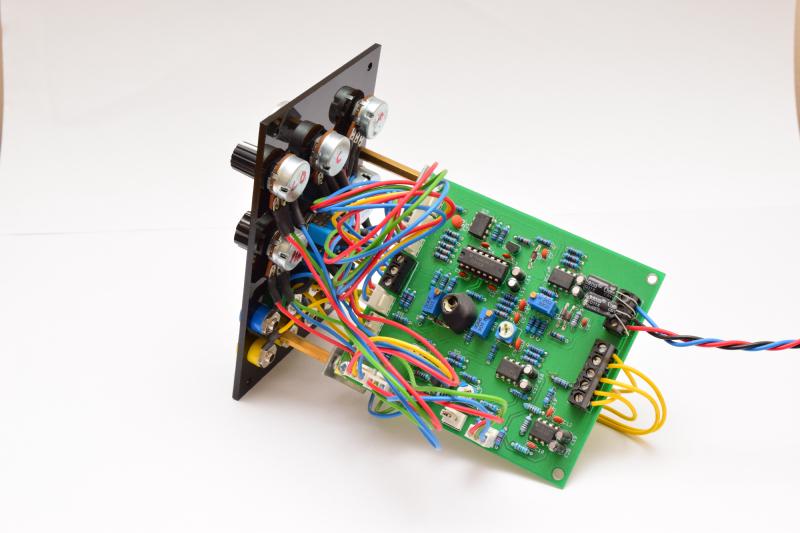Voltage-controlled Oscillator
Audio or modulation signal source for my DIY synthesiser, derived from Ray Wilson’s Music From Outer Space’s (MFOS) VCO and Thomas Henry’s VCO-1.
After my MIDI input module, this was the first module involving sound I built for my modular synthesiser. What better thing to start with than a sound source, now we have something to tell us what note to play?
After breadboarding a few VCO circuit designs I found online, I settled on combining Ray Wilson’s VCO design with a small part of Thomas Henry’s VCO-1.
I used most of the MFOS design, but opted to implement Thomas Henry’s transistor-based method of shaping the sine wave approximation.
Further, I had to make some changes to accomodate my different power supply needs. Most synthesisers operate on +/- 12V, but my modular synthesiser runs on +/- 5V.
This was my very first dual-layer and professionally fabricated PCB design, having only made single-layer home-etched boards before. The layout was a bit chaotic; I definitely could’ve laid it out in less space. There were several things I messed up and had to bodge-fix for each of the three units I built. That being said, this VCO has held up very well over the years.
It was initially built for a different panel format than the current eurorack-derived one; diagonally mounting the board was the best I could come up with to make it fit.
Work involved
- Circuit design (combining designs, breadboarding, tweaking)
- Schematic capture (EAGLE)
- PCB design (EAGLE)
- Panel design (Inkscape)
- Laser cutting at local makerspace
- PCB assembly and bodging (trace cutting)
- Panel assembly
- Calibration (1V/Octave tracking, waveform offsets, sine approximation)
Here’s a view of the PCB. You can see I forgot to include board-level capacitors in the design, so they were added after the fact, into the screw terminals. The heat-shrinked blob is a pair of transistors with a tempco resistor in between, with some heatsink paste squeezed in for good measure. This is part of the exponential converter of the circuit, which needs good thermal coupling for thermal stability of the tuning. In more current designs that called for such an exponential converter, I’ve opted to use matched pair of transistors in a single chip.
All design files be found on GitHub: VCO module

